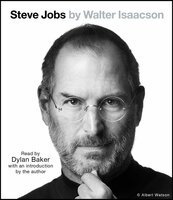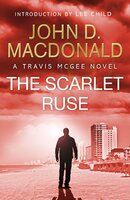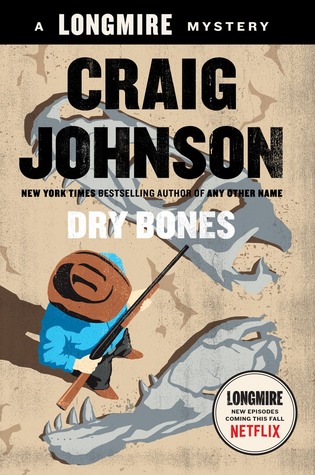Well put, I was trying to word it in a way that...well, wasn’t political. I think you hit the nail on the head.Unfortunately, it seems to have become the "how-to" manual for our times.
You are using an out of date browser. It may not display this or other websites correctly.
You should upgrade or use an alternative browser.
You should upgrade or use an alternative browser.
What Are You Reading?
- Thread starter TimmyBoston
- Start date
Ken Follett, "World without end", about half way through.
Don't think its as good as "Pillars of the Earth" though.
Don't think its as good as "Pillars of the Earth" though.
I'm a fan of Follett's spy novels, but have yet to read any of his medieval trilogy. I'll take your post as a reminder to begin.Ken Follett, "World without end", about half way through.
Don't think its as good as "Pillars of the Earth" though.
A very good read as are others of his that I have read. Might get me back to reading Simon Winchester again.That’s next for me. Looks like a great book.
The Devil in the White City: A Saga of Magic and Murder at the Fair that Changed America eBook: Larson, Erik: Amazon.ca: Kindle Store
The Devil in the White City: A Saga of Magic and Murder at the Fair that Changed America eBook: Larson, Erik: Amazon.ca: Kindle Storewww.amazon.ca
I read Krakatoa by Winchester. It was a good read.A very good read as are others of his that I have read. Might get me back to reading Simon Winchester again.
EclipseRedRing
I smell like a Christmas pudding
A very good, clearly pro Russian, first hand account of a pivotal battle. It is written by someone who is obviously no author but the easy style makes it all the more authentic. Highly recommended.
I'm a fan of Follett's spy novels, but have yet to read any of his medieval trilogy. I'll take your post as a reminder to begin.
I haven't read much of Follette but Pillars of the Earth was very good IMO.
View attachment 1223955
A very good, clearly pro Russian, first hand account of a pivotal battle. It is written by someone who is obviously no author but the easy style makes it all the more authentic. Highly recommended.
Made for a great movie - Enemy at the Gates
EclipseRedRing
I smell like a Christmas pudding
The main plot of the movie, the duel between Zaitsev and the German Major, occupies about five lines of the book, it is little more than a footnote. Like many Hollywood versions of history there is a lot of 'artistic license', in fact, at the start of the book the movie is described in very disparaging terms. Not a bad film thoughI haven't read much of Follette but Pillars of the Earth was very good IMO.
Made for a great movie - Enemy at the Gates
He writes an excellent book and I have read several. If you want a fun easy read pick up "The Professor and the Madman", it is a story of the creation of the Oxford English Dictionary. The book that I was introduced Winchester was "A Crack in the Edge of the World" about the San Francisco earthquake.I read Krakatoa by Winchester. It was a good read.
I read Krakatoa by Winchester. It was a good read.
I have been obsessed with Krakatoa since reading The 21 Balloons when I was a kid. I read Winchester's book when it first came out and loved the thing.
The main plot of the movie, the duel between Zaitsev and the German Major, occupies about five lines of the book, it is little more than a footnote. Like many Hollywood versions of history there is a lot of 'artistic license', in fact, at the start of the book the movie is described in very disparaging terms. Not a bad film though
Might be a good read for me then, thanks.
The Lathe of Heaven is a nearly perfect novel.
Yes!
Unfortunately, it seems to have become the "how-to" manual for our times.
An extremely apt and eloquent commentary. In reading 1984 one gains an understanding of the current world developments. Oceania, Eurasia, Eastasia - it's coming.
Be sure to read the appendix on "Newspeak."
Re-reading Anne Rivers Siddons' Peachtree Road. It's a big book, but not a multi-generation saga. Instead it focuses on one generation of one family, on the growth of Atlanta, and on the relationship between her protagonist, Shep Bondurant of Buckhead near Atlanta, and his cousin Lucy. It's also a portrait of their generation, the privileged kids born about 1933, and covers close to 45 years from Shep's first meeting with Lucy when he is 8 until around 1985 (the book is from '88). It is not a romance in the classic sense, but a family drama, perhaps even a tragedy.
Normally I don't care for novels written by women, especially in the last 20 years. Siddons was an exception. She played fair, had unpleasant female characters and good (sometimes even noble) male ones, and always had a solid story to tell. Her haunted house tale, The House Next Door, I mentioned earlier in this thread.
Normally I don't care for novels written by women, especially in the last 20 years. Siddons was an exception. She played fair, had unpleasant female characters and good (sometimes even noble) male ones, and always had a solid story to tell. Her haunted house tale, The House Next Door, I mentioned earlier in this thread.
Listening on Audible to 33 Strategies of War by Robert Greene, which I got as I recall on a daily special for $5 or $6. Thought provoking and sounds authoritative as a sort of an application of principles of war to every day life, such as things like Sun Tzu's The Art of War has become. Reminds me of Jordan Peterson's 12 Rules for Life. Seems at tad glib though, and I wonder how good the scholarship really is. For instance, I just listened to a section on the importance of developing folks who work for one and giving them a lot of autonomy but to apply your own thinking/principles. The author cites Ingmar Bergmar as developing actors who knew what he wanted and could execute with little guidance from him to free him up to do other directorial duties. He seems to frame Bergman as a well-organized, supportive figure, with clear vision and clearly communicated vision. That did not sound like the Ingmar Bergman I had heard about and I looked it up. A review of a doc film on Bergman in The Guardian described him as a cinematic visionary but "[a]s a person, though, he was destructive and disorderly, a temperamental boss and a predatory womaniser."
In the context of what Greene said about Bergman was a discussion of Gen. George Marshall's grooming of Dwight Eisenhower, and Eisenhower's similar grooming of Omar Bradley. So really, Mr. Greene, Ingmar Bergman's leadership skills belong on the same page as those of Marshall, Eisenhower, and Bradley in a book ostensibly about war?! I think those generals were giants from whom anyone might learn a lot about leadership. I think Bergman was a remarkable film director, but I do not think anyone would want to emulate his "leadership" style.
I think those generals were giants from whom anyone might learn a lot about leadership. I think Bergman was a remarkable film director, but I do not think anyone would want to emulate his "leadership" style.
In the context of what Greene said about Bergman was a discussion of Gen. George Marshall's grooming of Dwight Eisenhower, and Eisenhower's similar grooming of Omar Bradley. So really, Mr. Greene, Ingmar Bergman's leadership skills belong on the same page as those of Marshall, Eisenhower, and Bradley in a book ostensibly about war?!
Messygoon
Abandoned By Gypsies.
“Steve Jobs” by Walter Isaacson. Truly fascinating insights into a creative genius, but not a very nice man. Audiobook is addictive... find myself listening long after I’ve turned off the car.
Also “The Scarlet Ruse” by John D. MacDonald, #14 Travis McGee novel. Thank you Mike Rowe for recommending this series!
Also “The Scarlet Ruse” by John D. MacDonald, #14 Travis McGee novel. Thank you Mike Rowe for recommending this series!
Attachments
I've read a couple of John Le Carre books recently: "The Spy Who Came In From The Cold" and "Tinker, Tailor, Soldier, Spy".
Similar threads
- Replies
- 211
- Views
- 9K
- Replies
- 4
- Views
- 628
- Replies
- 35
- Views
- 2K
- Replies
- 39
- Views
- 2K
- Replies
- 2
- Views
- 574






